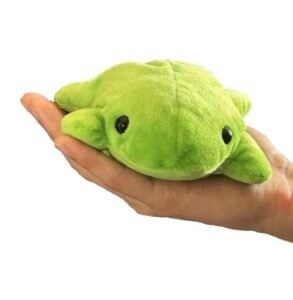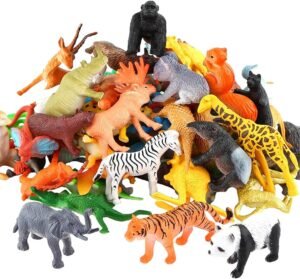As an Amazon Associate I earn from qualifying purchases.
Small animal vets and agriculture are more connected than they seem. They both play vital roles in maintaining healthy ecosystems.
Small animal vets do more than just treat pets. They also support farming communities in several ways. Agriculture involves more than crops and livestock. It includes the health of all animals in rural areas. Small animal vets help ensure pets and working animals stay healthy.
This is crucial for farmers who rely on these animals. Vets also keep diseases from spreading between animals and humans. They educate farmers about animal health and welfare. This helps improve the overall quality of agricultural practices. Understanding this connection highlights the importance of small animal vets in agriculture.

Credit: shs.rcschools.net
Introduction To Small Animal Vets
Small animal vets play a crucial role in agriculture by ensuring the health of farm pets and working animals. They help prevent diseases that can affect both animals and crops, promoting a healthy farming environment.
Small animal vets play a crucial role in the world of agriculture. They focus on the health and well-being of pets and small animals. These vets ensure that animals remain healthy and disease-free. Their work directly impacts animal welfare and agricultural productivity.Role And Responsibilities
Small animal vets diagnose and treat illnesses in pets and small animals. They perform surgeries and provide preventative care. They also educate pet owners about proper animal care. Another key responsibility is conducting routine check-ups. These check-ups help in early detection of health issues.Training And Education
Becoming a small animal vet requires extensive education. Aspiring vets must complete a Doctor of Veterinary Medicine (DVM) degree. This typically takes four years. After earning a DVM, they must pass a licensing exam. Some vets choose to specialize further. They may pursue additional training in specific areas of animal care. Small animal vets also need hands-on experience. This is often gained through internships or residencies. Practical experience is crucial for developing necessary skills. Continuous education is also important. Vets must stay updated on new treatments and technologies. This ensures they provide the best care possible for their patients. “`
Credit: www.instagram.com
Agricultural Practices And Small Animal Care
Small animal vets play a key role in agriculture. They ensure pets and small animals on farms remain healthy. Their expertise extends beyond just pets. They also help in maintaining overall farm health.
Impact Of Pets On Farms
Pets can affect farm productivity. Cats control rodent populations. Dogs help in herding livestock. Healthy pets mean a healthier farm environment.
Unwell pets can spread diseases. This can affect livestock. Regular vet visits keep pets healthy. This ensures the farm remains productive.
Small animal vets ensure pets get the right care. They vaccinate pets. They treat illnesses. They offer dietary advice. This keeps pets healthy. This indirectly benefits farm productivity.
Cross-species Health Management
Small animal vets also manage health across species. They understand how diseases spread between pets and livestock. This is vital for preventing outbreaks.
They monitor zoonotic diseases. These are diseases that can jump from animals to humans. Vets ensure these diseases are controlled. This keeps both animals and farm workers safe.
Small animal vets work with large animal vets. Together, they provide comprehensive farm health care. They create health plans for all animals. This ensures overall farm health.
Here is how small animal vets contribute to cross-species health:
- Vaccinations: Protect both pets and livestock from diseases.
- Health Monitoring: Regular check-ups for all animals.
- Disease Prevention: Identifying and controlling outbreaks.
In summary, small animal vets are crucial to agriculture. They help maintain healthy pets. This leads to a healthier and more productive farm.
Economic Contributions
Small animal vets play a significant role in agriculture’s economic landscape. Their services extend beyond traditional pet care, impacting farm operations and rural communities. This section explores how their expertise contributes economically.
Cost Savings For Farmers
Farmers benefit financially from small animal vets’ services in multiple ways:
- Preventive Care: Regular check-ups for farm pets and working animals reduce the risk of diseases.
- Vaccinations: Timely vaccinations prevent the spread of infections.
- Emergency Services: Quick response to emergencies can save animals’ lives and reduce losses.
By maintaining the health of working animals, farmers save on potential medical costs. Healthy animals work efficiently, reducing overall operational costs. This leads to increased productivity and profitability.
Boosting Rural Economies
Small animal vets contribute to the economic stability of rural areas. Their presence supports local businesses and services:
| Economic Impact | Description |
|---|---|
| Job Creation: | Veterinary clinics employ locals, providing steady jobs. |
| Local Spending: | Vets purchase supplies and services from local businesses. |
| Community Health: | Healthy animals lead to a healthier community overall. |
The presence of small animal vets in rural areas supports the local economy. It fosters growth and enhances the quality of life for residents.

Credit: www.ldaf.la.gov
Disease Control And Prevention
Small animal vets play a key role in agriculture. They help control and prevent diseases that can affect both animals and humans. Their work ensures a safe food supply. They also protect public health.
Zoonotic Disease Management
Zoonotic diseases can spread from animals to humans. Small animal vets identify and manage these diseases. They conduct regular health checks. They also educate farmers about disease risks. This reduces the chance of outbreaks.
Vaccination Programs
Vaccination is crucial for disease prevention. Small animal vets design and implement vaccination programs. They ensure pets and livestock are vaccinated against common diseases. This keeps animal populations healthy. It also prevents disease spread to humans. Vaccination programs are a vital part of disease control in agriculture.
Animal Welfare And Ethical Considerations
Small animal vets play a crucial role in agriculture. They ensure the health and well-being of farm animals. This is vital for ethical and humane treatment. Their work impacts both animal welfare and farming practices.
Improving Living Conditions
Small animal vets often work to improve the living conditions of farm animals. They check for proper housing and nutrition. Healthy animals lead to better productivity.
- Proper shelter
- Balanced diet
- Clean water supply
Ensuring these factors reduces stress on animals. This leads to healthier and happier livestock.
Ethical Treatment Standards
Ethical treatment is a core focus for small animal vets. They follow strict guidelines to ensure humane practices. This includes pain management and stress reduction.
- Use of pain relief methods
- Regular health check-ups
- Humane handling techniques
These standards are set by veterinary and agricultural bodies. They aim to ensure that farming practices are ethical. This helps in building consumer trust and maintaining animal welfare.
Technological Advancements
Technological advancements have significantly impacted small animal veterinary practices. These innovations have also found applications in agriculture. The integration of advanced tools and data analysis has transformed animal health care. This has improved productivity in agricultural settings.
Innovative Veterinary Tools
Modern veterinary tools have revolutionized animal care. Portable ultrasound machines help diagnose issues quickly. Digital X-rays provide clear images for better treatment decisions. Wearable devices monitor an animal’s health in real-time. These tools ensure timely and effective care for animals.
Data Analysis In Animal Health
Data analysis plays a crucial role in animal health. Vets collect data on an animal’s health and behavior. This data helps identify patterns and potential health issues early. Predictive analytics can forecast outbreaks of diseases. Early intervention can save both pets and livestock.
Data-driven decisions lead to better outcomes. They also reduce costs in the long run. Farmers benefit from healthier animals and increased productivity. Technology bridges the gap between small animal vets and agriculture.
Educational Outreach And Community Engagement
Small animal vets often engage with agricultural communities. Their role extends beyond treating pets. They also focus on educational outreach and community engagement. This helps bridge the gap between pet care and agricultural practices.
Workshops And Training
Small animal vets organize workshops for farmers. These workshops teach animal care and health management. Farmers learn vital skills for their livestock. Topics include disease prevention, proper nutrition, and basic veterinary care. These training sessions improve the health of farm animals. Vets also provide hands-on demonstrations. This practical approach helps farmers understand and apply new techniques.
Public Awareness Campaigns
Small animal vets run public awareness campaigns in rural areas. These campaigns educate farmers and their families. Key topics include zoonotic diseases, vaccination, and parasite control. Vets use simple language and visuals. This ensures everyone understands the information. Public awareness campaigns help prevent the spread of diseases. They also promote a healthier environment for both pets and farm animals.
Future Trends In Veterinary And Agricultural Integration
Small animal vets are finding new ways to work with agriculture. They help to promote healthier, more sustainable practices. This partnership benefits both the animals and the environment. Let’s explore some of the exciting future trends in this field.
Sustainable Farming Practices
One of the key future trends is the emphasis on sustainable farming practices. Vets and farmers are working together to reduce the use of chemicals. They aim to create healthier environments for both animals and crops. Here are some ways they achieve this:
- Using natural pest control methods
- Implementing crop rotation and diversification
- Promoting organic feed for livestock
- Encouraging the use of compost and natural fertilizers
Vets advise farmers on animal health, which impacts soil and plant health. Healthier animals produce better manure, which improves crop yields. This cycle supports both agriculture and veterinary fields.
Collaborative Research Initiatives
Future trends also include more collaborative research initiatives between vets and agricultural scientists. These partnerships lead to innovations that benefit both industries. Some key areas of research include:
- Developing new vaccines for livestock
- Studying the impact of diet on animal health
- Exploring alternatives to antibiotics
- Improving methods for disease detection and prevention
Research helps to identify the best practices for animal care. These findings can then be applied to improve farming methods. This collaborative approach benefits the entire agricultural ecosystem.
Small animal vets play a crucial role in advancing these future trends. Their expertise helps to bridge the gap between veterinary science and agriculture. The result is a more sustainable and efficient farming industry.
Frequently Asked Questions
How Do Small Animal Vets Benefit Agriculture?
Small animal vets help control diseases that can affect livestock. They also ensure pets on farms are healthy. This indirectly supports agricultural productivity.
What Is The Role Of Vets In Farming?
Vets ensure the health of both livestock and pets on farms. They prevent disease outbreaks and ensure animal welfare.
Can Small Animal Vets Work In Rural Areas?
Yes, small animal vets often work in rural areas. They provide essential services to both pets and farm animals.
How Do Small Animal Vets Contribute To Food Safety?
Small animal vets play a role in controlling zoonotic diseases. They ensure pets on farms are healthy, protecting food safety.
Conclusion
Small animal vets play a crucial role in agriculture. They ensure pets and livestock stay healthy. This boosts farm productivity. Healthy animals produce more, benefitting the agricultural sector. Vets also monitor diseases that could spread to humans. This keeps communities safe.
Their work is essential for food safety and animal welfare. Small animal vets and agriculture are closely linked. Their partnership supports sustainable farming practices. Understanding this connection is vital for everyone involved in agriculture.
As an Amazon Associate, I earn from qualifying purchases.


